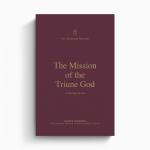This post is part of a series walking through the third volume of Abraham Kuyper’s Common Grace
As we saw in the last post, theoretical absolutist systems may be formed, but in practice they are quickly found to be impossible. This is because history evolves–specifically it evolves from unity/uniformity to diversity (albeit diversity with the goal of harmony). This is not just because of sin, but is built into “God’s creation ordinance.” (324)
“Every process moves from the unity of the seed-bearing stage, to the splitting of the branches, to the harmony of the full-grown plant.” (324)
Does this fact not lead to neutrality/skepticism as the proper political position? For that matter, doesn’t it lead to French Revolution-style neutrality? Here, Kuyper notes that we need to realize what some people (he has in mind French Revolutionaries) mean by “neutrality” and “revolution,” especially in light of Roman Catholicism’s claim that the Protestant Reformation caused the French Revolution. We’ve already said that the French Revolution denied inspiration and elevated man’s will. In doing so, they also opposed the church and religious tradition and actively sought to replace it with “a humanistic view of life” (325-326)
“Neutrality” in this sense really just means that ‘my version of ‘science’ wins,’ and ‘neutrality’ becomes a form of attack.
So, the charge then becomes that we want neutrality, given that we think “government must deal equitably in all matters,” and so we also don’t want the government deciding who is the true and false church. (326)
Here we distinguish the person from the office. Every person is to call for the conversion of the unbelieving world; but that person in their office is to do their job well. This is the “neutrality” we pursue. We want neutrality as a virtue, not as a fault. Kuyper then gives several examples of neutrality (both good and bad) during wartime. The point is that both our actions and our motivations must be considered. It is not bad “neutrality” to refrain from doing something you’re unqualified to do.
Besides, Kuyper is not opposed to government recognition of the church and its place in daily life. No matter which view we take (and Kuyper recaps them here), the government simply may not choose the “true” church. This is even the command given to the church (though Kuyper does some exegetical stretch in some of his examples).
Dr. Coyle Neal is co-host of the City of Man Podcast an Amazon Associate (which is linked in this blog), and an Associate Professor of Political Science at Southwest Baptist University in Bolivar, MO












